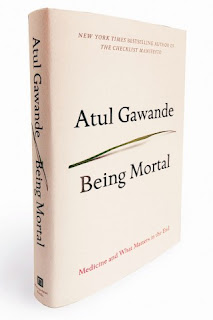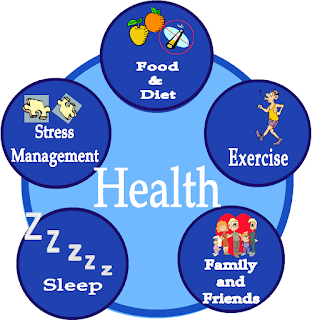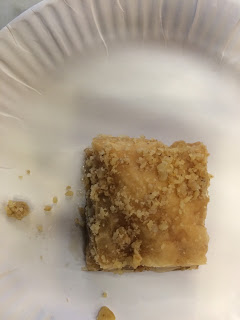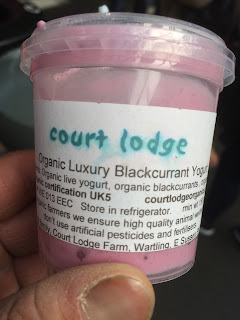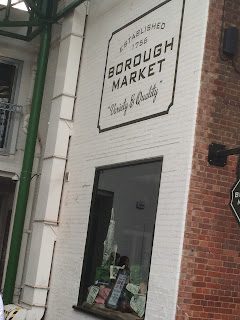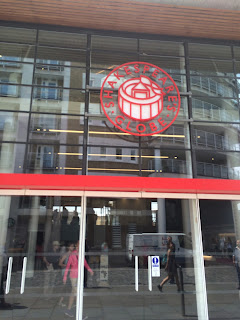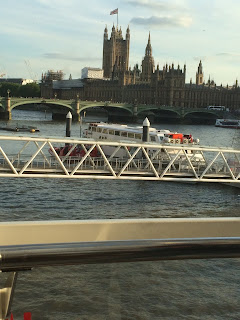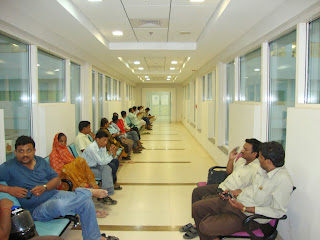Search for dialysis centres here
 Log in to explore the world's most comprehensive database of dialysis centres for free!
Log in to explore the world's most comprehensive database of dialysis centres for free!

Kamal Shah
Hello, I'm Kamal from Hyderabad, India. I have been on dialysis for the last 13 years, six of them on PD, the rest on hemo. I have been on daily nocturnal home hemodialysis for the last four and half years. I can do pretty much everything myself. I love to travel and do short weekend trips or longer trips to places which have dialysis centers. Goa in India is a personal favorite. It is a great holiday destination and has two very good dialysis centers.
E-mail: This e-mail address is being protected from spambots. You need JavaScript enabled to view it
Being Mortal: Medicine and What Matters in the End - Atul Gawande
I recently finished reading this book. I had read Atul Gawande's earlier two books - Better and The Checklist Manifesto and had been impressed by both. This book also has the familiar Gawande style - incidents from his practice interspersed with various insights into the issue.
Many years back, when I had healthy kidneys, I had briefly studied a Jain text called 'Vairagya Shatak'. I vividly remember a line from that text - '.... tinni jana anulagga, rogo-a, jara-a, macchu-a' which roughly translated to '(Once an individual is born), three people run after him - disease, aging and death'. During those days, I was too young to understand the importance of that line. I was invincible. None of these could catch up with me! Or so, I thought.
Gawande's book talks about people in their last few years and the challenges healthcare faces today in looking after them. He emphasises that what is a priority for medicine may not necessarily be the priority of the people being treated.
He highlights the need to give people a purpose in life. He narrates the happenings at Chase Memorial Nursing Home where eighty severely disabled people were being nursed. The nursing home was a depressing place to be, with strict routines, fixed times for everything from waking up to eating to sleeping. Until Dr. Bill Thomas entered the scene. Dr. Thomas tried an experiment. He enlivened the place by putting in green plants in every room, creating a vegetable and flower garden and bringing in animals. The authorities and the staff balked at first but decided to give it a shot. The results were amazing. Outcomes improved dramatically. The number of anti-depressants people were taking reduced.
The above experiment is a lesson to a lot of healthcare experts. Even on dialysis, I strongly believe, people should work. A purpose in life is often what differentiates people who do well from those who don't.
Another important thing that Gawande explains in his book is independence. Even the elderly like to be independent. He explains how people preferred to stay in centres where they had individual apartments with a door that closed to common living areas where people did not have any privacy. Even though, at first thought, it might seem that having such apartments might be risky for the elderly (should there be a fall or something), the amount of control that is lost by not doing so can play a huge part in keeping the person depressed.
Healthcare professionals have been conditioned to save lives. They are not, however, taught about the importance of the quality of life after it is saved. What purpose is saving a life if it is sustained by means of a feeding tube or on the ventilator? He advocates that people who are particularly vulnerable be asked, well in advance, what is important to them? "...what trade-offs he was willing to make and not willing to make to try to stop what was happening to him?"
For some people, complete physical paralysis, for example, may just not be acceptable. For some, just being around to see their grandchildren play, even if from a wheel chair might be good enough. The important thing is each of us is different. This is what medical professionals must realise.
This applies to anyone with a chronic condition as well. It is important for us to think through what we would be willing to compromise on should things come to that. And then give an advanced directive to our kin. The directive could be simple answers to the following questions: (from Gawande's book)
... http://www.kamaldshah.com/2015/07/being-mortal-medicine-and-what-matters.html
Appreciate the value of good health
Around the same time however, I had to change my buttonhole sites and was using sharp needles instead of the usual blunt ones. Due to this, I had some sleepless nights. The sharp needles hurt.
Again, at the same time, I had changed one particular medication which was supposed to reduce the itching I was experiencing. The itching did not reduce. Instead I began having symptoms of restless legs.
Dealing with all these things at the same time became quite onerous. I became frustrated and depressed. I usually am fairly good at dealing with issues. But when they come all at once, I find it difficult to handle.
Kidney disease is something that takes over your body completely. Not one part of it is spared. Even a transplant is not a 100% solution. There are issues from time to time. There is always the stress of your creatinine value going slightly up and worrying about losing the transplant.
I met a friend with CKD a few weeks back. We were chatting about our lives in general. We were at a restaurant and were looking around us. My friend remarked, "Look at all these people. They are all laughing and joking. They are probably talking about what they're going to be doing this weekend. And look at us. We are talking about how many more years we might be able to live!"
It was so true. People with and without a chronic condition have such different perspectives about life. The things that are important to each group are so very different!
One sad part however is that healthy people never realize the importance of good health. They live in a world where they think that nothing would happen to them. Many people continuously abuse their bodies. They take good health for granted.
This is really sad. I feel like pleading with them not to do this. I want to tell them that they have no idea what it is like to have a chronic disease. I want to tell them that they are not as safe as they think they are. All it takes is one moment in time when things could completely change. The've changed for me. The've changed for many others.
Please don't take your body for granted. Be grateful for good health. Preserve it with all your might.
... http://www.kamaldshah.com/2015/07/appreciate-value-of-good-health.html
London Diary
I am a part of the aHUS Alliance which is an umbrella organisation for all aHUS Patient Organisations from all around the globe. I represent India through the Atypical HUS India Foundation, which is India's official aHUS patient organisation. I had attended the last aHUS alliance meeting held in Paris by video conference. So, this time, when I got to know that the alliance was having its meeting in London, I thought it would be great if I could attend in person.
I had never been to London. So, I could go a few days early and then look around the place and attend the meeting on the 28th of June and come back. The UK aHUS patient organisation was having its meeting on the preceding day and we were all invited for that as well.
Burough Market - foodie's paradise
The day after I landed, I had scheduled a dialysis session. The London Clinic at Devonshire Place needed me to come that day at 8 a.m. for my virology tests before they would take me for my dialysis at 2 p.m. I took a combination of an overground train and the famous London Underground Tube to arrive at Devonshire Place. Once my blood was collected, I had a few hours to kill. My family had suggested that I visit Madame Tussaud's, the famous wax museum. I decided to skip that and visit Burough Market, which is a wonderful market with myriad food shops selling everything from fresh produce to sandwiches to an array of desserts.
I first gorged on fresh berries. I enjoyed them thoroughly. The problem with my home city of Hyderabad is that you rarely get berries. I took a small tub of assorted berries which had a mix of blackberries, strawberries, raspberries and blueberries. I then had a Vegetable Panini Sandwich. The bread used in this sandwich was this awesome, fresh, ciabatta and was made very well. I topped this up with a cup of strawberries and a cup of black currant yoghurt. I also tried a small piece of baklava.
I honestly believe that to enjoy a place you need to do some of the stuff locals do like this market. I would pick such stuff any day over wax statues!
London sights
The next day, I got on to a Hop On Hop Off bus. These buses take you around the famous sights of London and allow you 'Hop Off' the bus at any place you want to explore more. Buses arrive roughly every ten to fifteen minutes and you can 'Hop On' to any of them once you're done with a site. I first got off at Shakespeare's Globe Theatre. I had studied two Shakespeare books as part of school and it was a good experience seeing the theatre, which is a replica of the original theatre which was destroyed in a fire. I actually watched part of a play being staged, 'Measure for Measure'.
I then hopped off at Westminster Abbey. This is a church where most royal weddings are held. This is also a burial for famous British people. As you walk along the corridors of the abbey, you notice the graves of people like Charles Darwin and Albert Einstein. Though we've all known of the existence of these people and studied their contributions to science, it is not until you actually see their graves, do you actually realise that they existed in flesh and blood, if you know what I mean!
London Eye
On Saturday evening, with the other participants of the aHUS Alliance, I went on a ride of the London Eye, which is a giant Ferris wheel on the South Bank of the River Thames. You complete an entire circle in about half an hour and it offers some spectacular views of the city. I leave you with some pictures I took.
Our Moon Has Blood Clots: The Exodus of the Kashmiri Pandits
I am not sure how I chanced upon this book. It wasn't as if I had heard about it from someone who'd read it. But I remember getting intrigued by the title on Amazon and then having it delivered to the Kindle app on my iPad.
I did not know anything about the Kashmiri Pandit exodus until now. I kept hearing the word 'Pandit' during television debates around the Jammu and Kashmir elections. I had no idea of the brutality and the horrors faced by this community since India's independence.
Hundreds of thousands of Kashmiri Pandits have migrated out of their original homes in the valley to Jammu and elsewhere. Many of those who decided to stay back have been murdered in cold blood. The first set of massacres happened just after Indian Independence when tribesmen from Pakistan's NWFP helped by Pakistani Army regulars stormed the region. The second set happened in the 1990s when the Mujahideen, egged on by Pakistan and with a lot of help from the locals disenchanted with the Indian political class, infiltrated into the valley and unleashed an equally destructive wave of terror.
The book is a poignant chronicling of both these periods - the latter by the author, Rahul Pandita himself and the former by an uncle, paraphrased by the author.
We see the Kashmir conflict through the eyes of a young Hindu boy who was brought up in the valley, whose life is shattered by marauding gunmen out to destroy society as he knows it. His father's painful decision of leaving a home ('that had twenty-two rooms') built with his Provident Fund savings after enduring nights of terror mentally destroys the family. From there, it is one struggle after another.
The brutality is recounted in gory detail. Incidents of the people being shot at, women being raped and neighbours not helping in their hour of need leave the reader with a deep sense of anguish at the series of events that have rocked this beautiful land of Kashmir.
What the author laments is that the story of the Pandits has not been told truthfully. "Over the years, the narrative of what led to the exodus of the Kashmiri Pandits from the Valley has been changed. A series of untruths have been spoken so many times that they have almost become the truth. One major untruth is that the Pandits were made to leave Kashmir under a government design to discredit the Kashmiri secessionist movement."
The truth however is that the Kashmiri secessionist movement was, in reality, the cause of the Pandit exodus. The Governor of the state, Jagmohan did not, unlike what many would have us believe, get the Pandits to leave wilfully to discredit the movement.
Every conflict has multiple dimensions and more than one point of view. While Pandita's book gives us the story of the Kashmir conflict through the eyes of the Pandits, a recent film, 'Haider', directed by that genius of a film director, Vishal Bharadwaj, narrates the Kashmir conflict through the eyes of a Kashmiri Muslim whose father is falsely implicated by the Indian Armed Forces for terrorism.
"Kashmir is so beautiful ..... even the gods are jealous of it", says Pandita in the book. "... And then they gave us rulers susceptible to greed, lust and deceit. And savagery."
What better explanation can you give to such a beautiful land going through so much bloodshed? If you do not know much about the history of Kashmir, you must read this book and watch the film. Both are unmissable!
... http://www.kamaldshah.com/2015/06/our-moon-has-blood-clots-exodus-of.html
The corporatization of healthcare - a double-edged sword
There is a lot of distrust among the general public about doctors, hospitals and healthcare providers in general. A lot of this started after healthcare started getting 'corporatized'. It is a well-known fact that doctors get referral fees for most medical services - lab tests, pharmacy prescriptions, hospital admissions, ICU admissions etc. Many corporate hospitals also are known to set targets for their doctors for these services.
Across the world, this has led to an increased burden on the payers - whether they are insurance companies, governments or the patients. This cannot be good for anyone in the long run.
Atul Gawande (a surgeon of Indian origin in the US, author of bestsellers like Better and The Checklist Manifesto) wrote in an excellent article for The New Yorker, "An avalanche of unnecessary medical care is harming patients physically and financially."
Gawande writes, "The virtuous patient is up against long odds, however. One major problem is what economists call information asymmetry. .... Doctors generally know more about the value of a given medical treatment than patients, who have little ability to determine the quality of the advice they are getting. Doctors, therefore, are in a powerful position. We can recommend care of little or no value because it enhances our incomes, because it’s our habit, or because we genuinely but incorrectly believe in it, and patients will tend to follow our recommendations."
Another major problem, Gawande highlights, "... is the hidden harm: unnecessary care often crowds out necessary care, particularly when the necessary care is less remunerative."
The whole model of incentivising doctors for tests and procedures has just too many problems.
There are many doctors who have started resisting this model. There are some companies which are being formed that are changing the model to show that doctors can still make money (nothing wrong with that!) but by ensuring better care. The US's WellMed has a model where "if a doctor improved the quality of care, this would save on costs, and WellMed would share those savings with the doctor in the form of bonuses." This is where healthcare should be moving towards.
Doctors should be incentivised, no doubt. They should be allowed to make money. After all, they spend years learning medicine, spend lakhs of rupees getting their education. What is wrong in them trying to recover those costs and lead a comfortable life? Aren't they entitled to a good life as well? Of course! The only issue is that this should not be at the patient's expense. This should happen only if they ensure that their patients do well! Outcomes based incentives are the way to go.
Despite people cribbing about corporate hospitals, these hospitals are the ones that have brought quality healthcare to the Indian population. Walk into a government hospital today and you see the difference. Many of these hospitals are very badly run. They just do not have the infrastructure to cater to the large volume of patients. The only way patients have got access to quality is due to these corporate hospitals. There's no denying that the latest technology has been made accessible to the patients in India only due to the corporate hospitals.
Many doctors are also becoming increasingly frustrated with the system that accuses them of various unethical practices but glosses over the constraints they are operating under. This led to a doctor saying he would never advise his child to become a doctor in India.
What needs to be done is to turn the model on its head and make sure that corporate hospitals remain profitable, doctors continue to earn a decent income and yet patients don't have to undergo unnecessary procedures and tests. I'm sure the MBAs and consultants that are managing these hospitals can figure this out!
A great beginning has been made by the SLIM (Society for Less Investigative Medicine) initiative started by some Indian doctors. This society aims to reduce the number of investigations and interventions for patients. An article about the initiative says, "Doctors from across the country and non-medical professionals 'frustrated by the sheer avarice on display in the entire field of medicine' have expressed their desire to be part of the SLIM initiative."
One suggestion to SLIM - give people who are part of this initiative a certificate or a poster they can proudly display in their clinics and increase awareness about this initiative. When patients go to SLIM empanelled doctors they can be sure that they would not be subjected to unnecessary medical expenses.
Any system evolves. The Indian healthcare system must also evolve. Just like Rome, it cannot be built in a day. The good part about this is that people have started realising this and some action is already being seen. I only hope this continues and the system changes so that all can win - hospitals, doctors and most importantly, the patients.
... http://www.kamaldshah.com/2015/05/the-corporatization-of-healthcare.html
 Professional dialysis recruitment
Professional dialysis recruitment